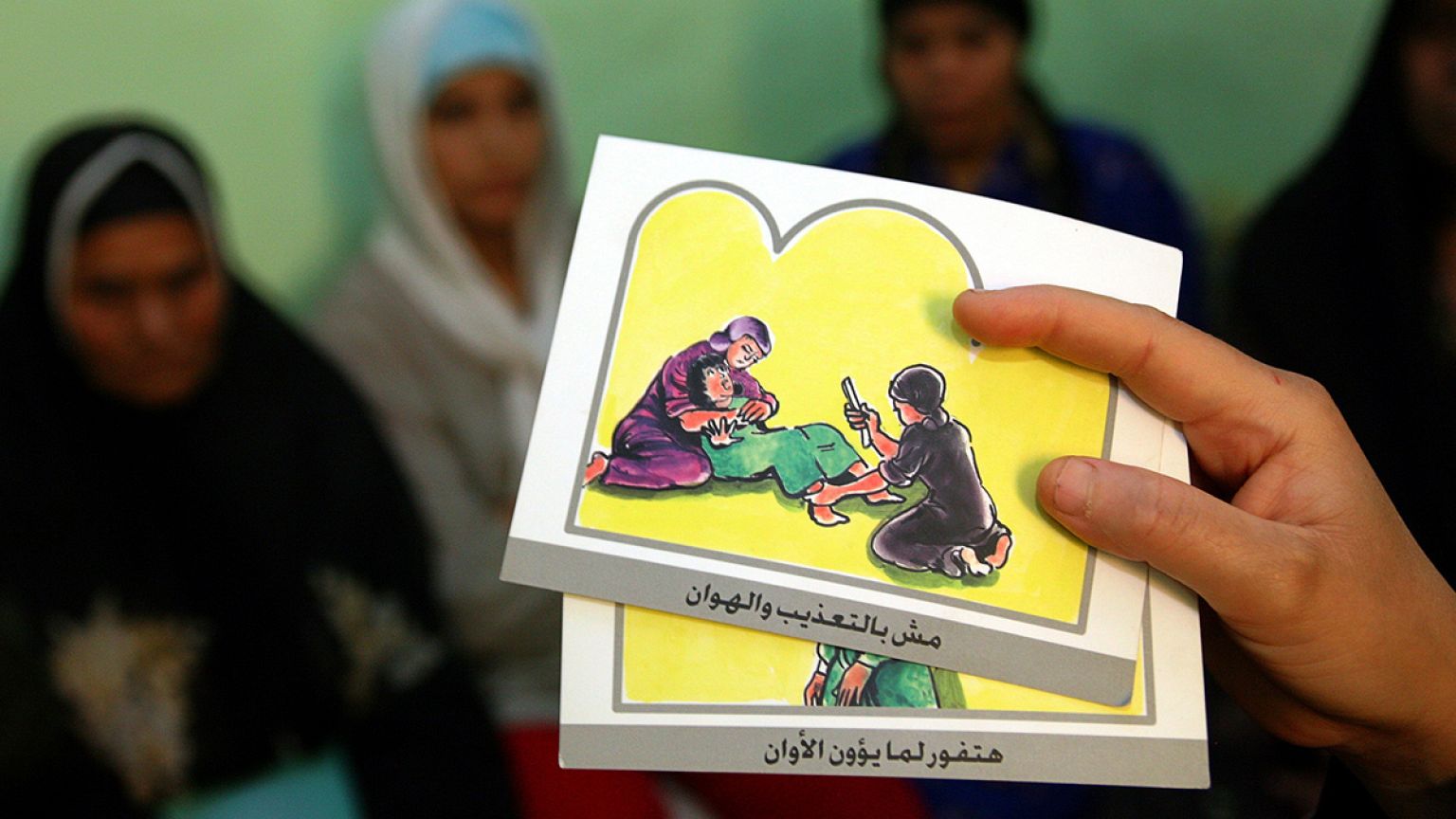Egypt announced this weekend it intends to tighten legislation against Female Genital Mutilation, and has published a proposed law that will hit anyone performing the operation with up to seven years
Egypt announced this weekend it intends to tighten legislation against Female Genital Mutilation, and has published a proposed law that will hit anyone performing the operation with up to seven years in jail.
 ADVERTISEMENT
ADVERTISEMENT
 ADVERTISEMENT
ADVERTISEMENT
The government wants to crack down on the practice, which is already against the law, but is widely used nonetheless.
FGM is characterised by the partial or total removal of a woman’s external genital organs when no medical reason for the procedure is indicated. It can cause severe bleeding, pain, shock, recurrent urinary tract infections, cysts and infertility. It increases the risk of labour complications and new-born deaths. The procedure itself can prove fatal
It also significantly lowers the feelings of pleasure experienced while love-making.
A UNICEF report published in February declared that at least 200 million girls and women alive today have suffered FGM in 30 countries, mainly in Africa.
FGM is recognised internationally as a fundamental violation of womens’ and girls’ rights.
Of those 30 countries, Egypt is high on the list. The percentage of women in the 15 to 49 age group to have suffered sexual mutilation is highest in Somalia, (98%), followed by Guinea, (97%), Djibouti, (91%), and Sierra Leone, (90%). Mali is next, with 89%, followed by Egypt, with 87%. Eritrea completes the high-percentage group, with 83%.
Forty-four million girls under the age of 14 have also been harmed in this way, mainly in the Gambia, (56%), followed by Mauritania, (54%), and Indonesia, (49%).
In the latter around half of all girls aged under 11 have been cut.
Ifrah Salad Abdulle, a 17-year-old, lives in a refugee camp that hosts thousands of displaced Somalis fleeing the two-decades long civil war. Many are sick as a result of complications after FGM.
“I underwent FGM at the age of eight,” says Ifrah. “I experienced many problems when I was circumcised. I was at home, in great pain and bedridden for several days due to the stitches, my legs were tied together to ensure I didn’t move so the stitches would stay in place. I was unable to pass urine normally, I had to lie on my side in order to urinate.”
At Benadir Hospital in Mogadishu victims stream in for treatment, either for reconstructive surgery or complicated pregnancies.
Doctor Maryam Omar Salad said the practice results in major complications during child delivery, endangering the lives of both the mother and the unborn child.
“When the baby comes into the birth canal, it cannot exit, and the baby becomes asphyxiated and later on becomes a stillbirth or after a long resuscitation, can also develop cerebral palsy. A c-section may be the only solution, with its attendant risks,” she says.
Many countries have strengthened their laws to try and crack down on the practice, and on a more local level many communities are taking a public stand against FGM says UNICEF in its February report. They are opening cracks in the edifice that allows the organisation to hope for progress on the issue.














